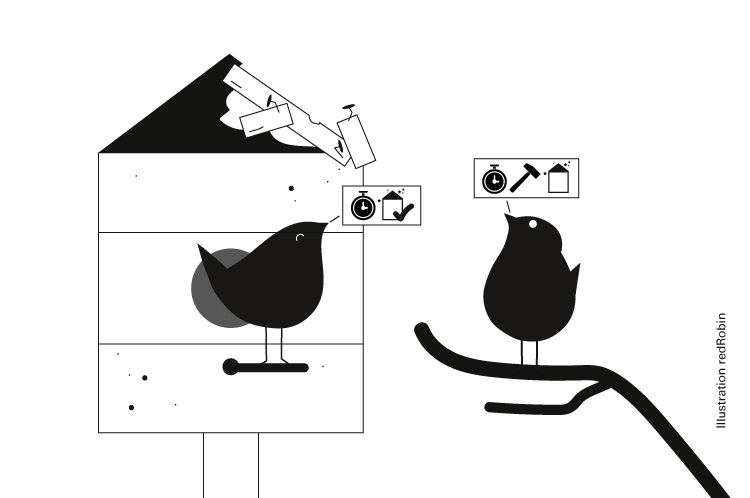The human brain is a marvel, unbeaten in its capacity for unconscious learning: all day long it is busy perceiving its environment and absorbing information. Most of it happens subconsciously. But everything that surrounds us leaves traces in the brain and makes us ready to do things – without us having consciously decided to do them. Science calls this process priming. A particularly effective instrument for specifically influencing brains and their people is, of course, language. This is true not only in PR, but across all industries.
Priming, however, is a double-edged sword; it does not only have positive effects. The word "fast" is a very good example here. It is practically a plague and is heard and read far too often in the Western world. Nevertheless, the adjective is used more and more often. The problem: the short little word has it all. On the one hand, it puts time pressure on the person acting. And then it tempts people to plan poorly, because the actual time a process takes is grossly underestimated:
- Customer service: "I'll ask and then call you back quickly.” – But it takes quite a while until the call back.
- Shortly before the meeting: "I'm just going to the toilet real fast!” – The colleague says and is gone for half an hour.
- At the family breakfast: "We just have to get dressed quickly, then we can go!" – Do you know a child who gets dressed quickly? Exactly!
This list could go on and on. The only exception is perhaps St. Nicholas, who is supposed to deliver presents to all the children of the world really quickly – within one night. But here, too, the real task is to make sure that all the children in the world receive their gifts, isn't it? So, the actual task is often quite different, not "quickly". Here are some examples:
- To the proofreading department: "Please proofread this text carefully!"
- To the compliance department: "Please check this statement factually."
- To central purchasing: "Please purchase the Christmas cards in good time."
- To the manager, who is to sign the Christmas mail: "Please sign these cards legibly - or delegate them to someone else."
- To the secretary's office: "Please sign with my name." – For your information: US President John F. Kennedy, for example, had 15 secretaries, who signed with his name.
"Ain’t that just splitting hairs?" some critical minds will ask now. No! Modern methods of brain research clearly show: Every word leaves its mark on the physical level, and also on the level of behaviour and mood. So, it is not irrelevant which words we use. The more often we are told "Please do it quickly", the more we are influenced by haste and hurry – and not by quality, creativity, sense, and care.
For many people, the careful use of words is unfamiliar and sometimes really not that easy. But it is worth it. It is a very simple and completely free way to bring more clarity, more commitment, more appreciation, and more joy into your (working) life. Enjoy trying it and have a wonderful Advent and Christmas season!


